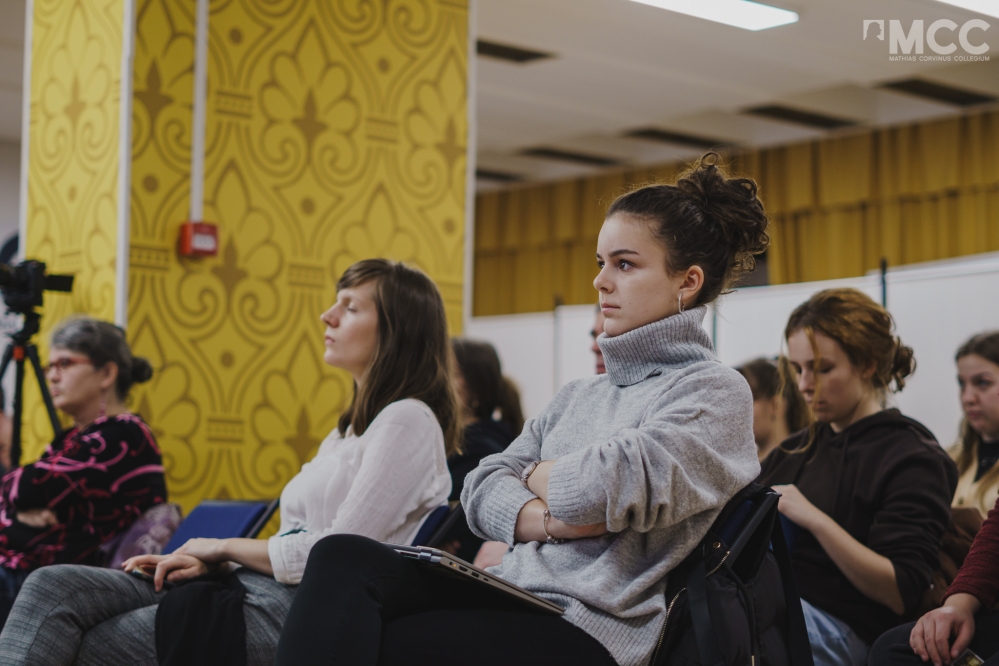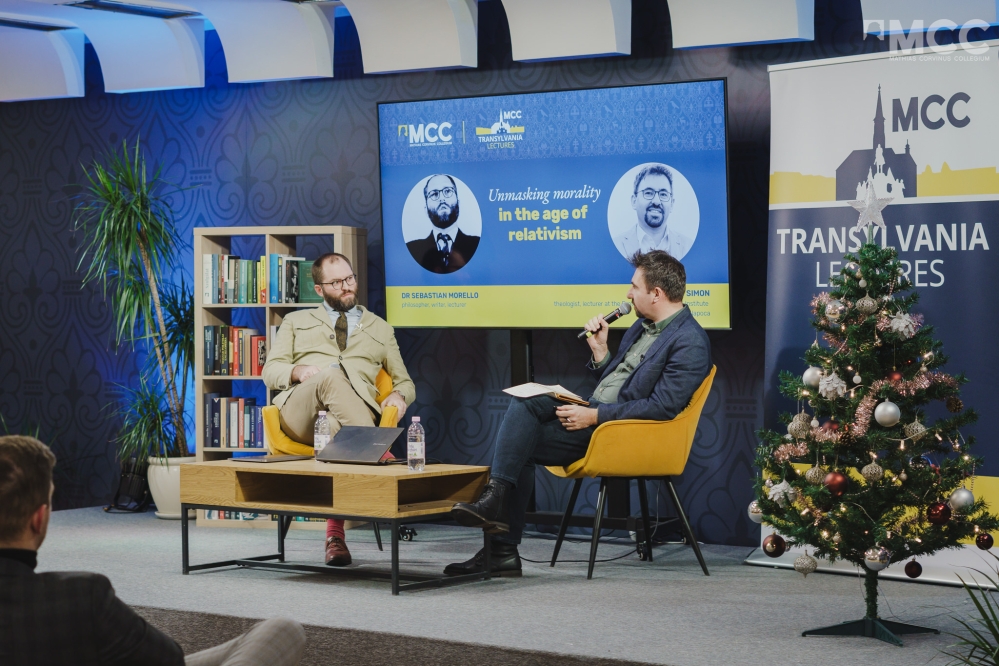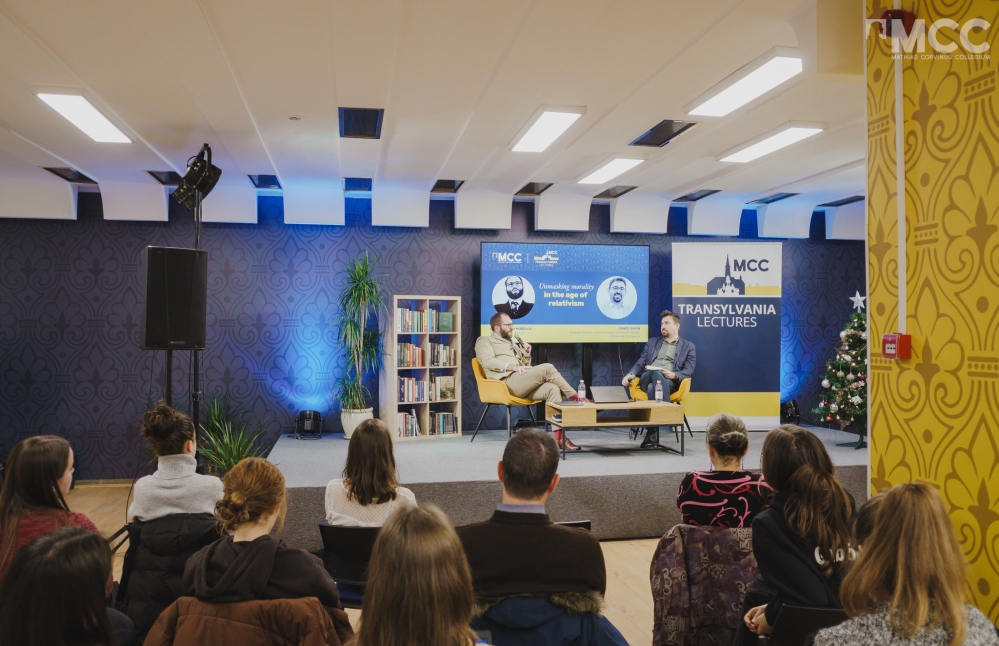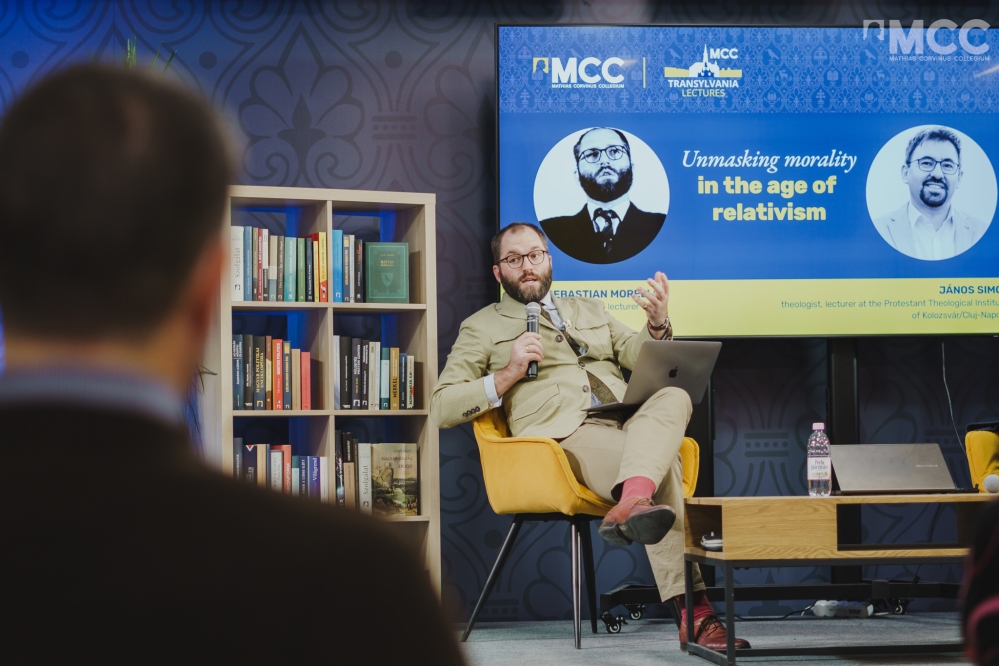Reading time: 3 minutes
Having a smartphone in my pocket doesn't make me a better person. At the last event of this year's Transylvania Lectures series, philosopher and author Dr Sebastian Morello pointed out that many people today confuse technological progress with moral development. The lecturer discussed morality, utilitarianism and the moral issues that drive today's societies with János Simon, theologian and lecturer at the local Protestant Theological Institute on 13 December at the MCC Centre in Kolozsvár/Cluj-Napoca.
The latest Transylvania Lectures discussion centered on the nuanced topic of moral imperatives, examining whether they are universally applicable or contextually specific. Philosophical traditions have historically identified certain moral principles as universal, unchanged by varying circumstances. However, there are also those moral imperatives that, while universal in essence, adapt in practice depending on specific situations and societal expectations. Beyond these, some moral imperatives are entirely contingent on the context in which they arise. At the event our invited guests reevaluated what we consider universal and what is seen as relative, as well as the need for a deeper reassessment of our collective moral constructs.
Dr Sebastian Morello is a philosopher, writer, lecturer and public speaker. He studied philosophy and was trained by Sir Roger Scruton. He is the author of The World as God's Icon (Angelico, 2020), which explores the Neoplatonic themes in the thought of Thomas Aquinas, and Conservatism and Grace (Routledge, 2023), a work of political philosophy. He is also a contributing author of numerous books on philosophy, history, liturgy, and education. He works as Senior Editor, Editorial Board Member, and writer at The European Conservative, a journal of political and cultural criticism.
In the lecture, the philosopher first pointed out the differences between moral rules: while the prohibitions are clear (e.g. don't kill, don't steal) and easy to understand in all cultures, there is no good answer to the question of how to enforce the rules to respect your parents or be a patriot. Positive moral imperatives are worked out by custom, habit, constantly adapting to new cultural contexts, and we get new forms of ethical negotiation.
The speaker also talked about utilitarianism, which was a big trend in the age of empire building. In the 20th century, the greatest atrocities were committed under the banner of utilitarianism, Sebastian Morello pointed out. Followers of this worldview justify their morally questionable actions by claiming that they were committed for the greater good. The problem is, it’s structurally insatiable and progressive in the worst kind of ways. According to the philosopher, the entire moral discourse oscillates between two principles, progressive and universal, but both undermine what the ethical discourse is really about. Traditionalism and localism may be the way out. Moral discourse needs to be localised, because we are aware of the expectations of the people in our own environment, and moral intuition unfolds from concrete obligations in our community. The speaker said that it is encouraging that in the face of globalisation, localist, traditionalist organic argument reemerges.



